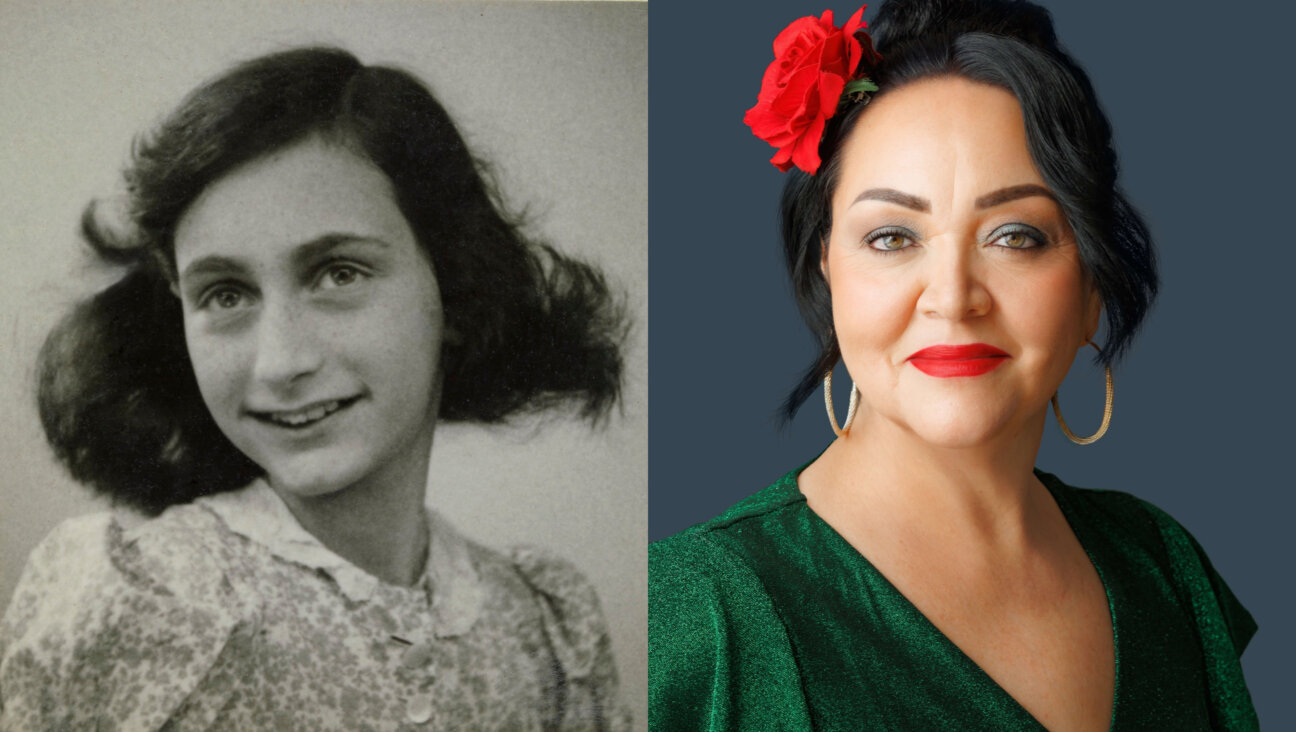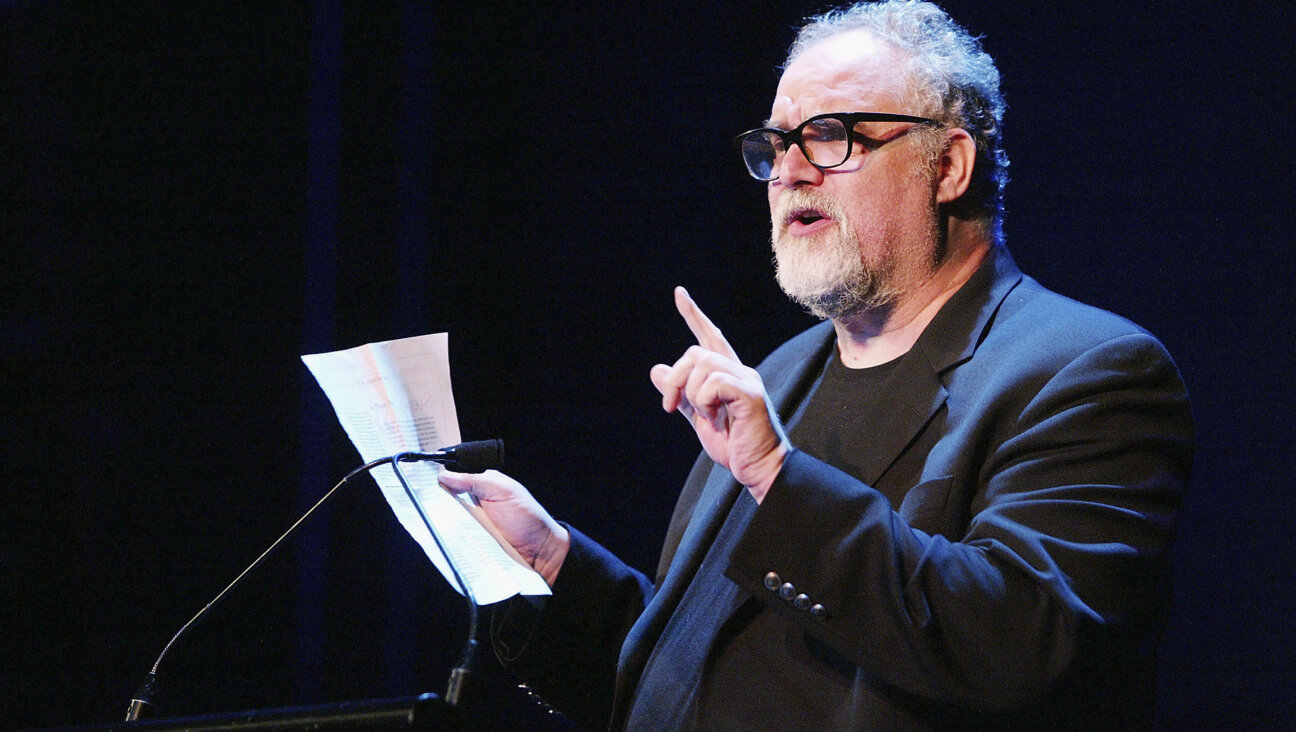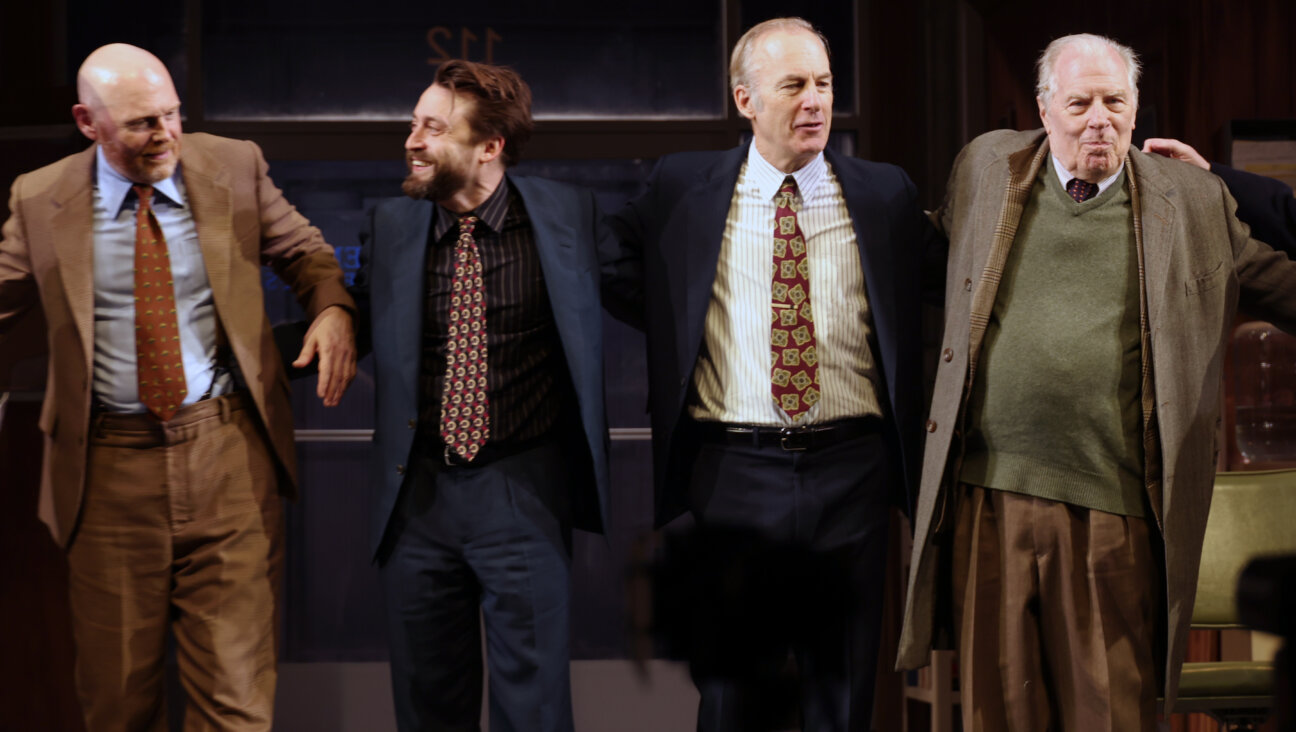This Would-Be ‘Fiddler On The Roof’ Sequel Was A Flop. Is It Better In 2019?

Graphic by Angelie Zaslavsky
The musical “Rags” has a complicated history. It premiered on Broadway in 1986, closing after four performances and 18 previews. It’s been rewritten and restructured and revived so many times that, reading a plot synopsis for a previous version after seeing a dress rehearsal of NYU’s new iteration of the show, I barely recognized the musical I’d seen. That character had a husband? The rabblerousing labor organizer was Jewish, not Italian? The doomed girl had character attributes other than “pretty?”
The concept is deceptively simple: In early 20th-century Manhattan, a wave of Eastern European Jewish immigrants arrives, and its member try to build new lives. Since its debut, the musical has been framed as a theoretical sequel to “Fiddler on the Roof,” the story after the shtetl. That comparison isn’t frivolous; the musical was originally imagined as a screenplay by Joe Stein, the librettist of “Fiddler,” who collaborated on “Rags” with composer Charles Strouse and lyricist Stephen Schwartz.
But where “Fiddler,” for all that Yiddishists take issue with its simplification of Sholem Aleichem’s source text, touches the heart of something deeply human and deeply Jewish, “Rags” has always struggled to reach audience’s hearts. 33 years after its first failure — the show was received with a critical “eh,” although it did gain a Tony nomination for Best Musical — the urge to revive it makes an innate sense. It’s a musical about rundown immigrants struggling to find a place in a hostile country that sees them alternatively as “grist for the capital system,” one of the show’s better lyrics, and cultural bandits determined to ruin America’s Protestant purity. Does that resonate?
In many ways, “Rags” should work as a text for 2019, a time when immigrants are once more besieged, the most successful capitalists are objects of widespread disdain and labor activism is sexy again. (Disclaimer: I sit on the executive committee of the NewsGuild of New York. Like I said, labor is cool.) But even in this new version, workshopped at NYU with Schwartz and with a script newly revised by the playwright David Thompson (“The Look of Love”), the pieces never come together. “Fiddler” elicits sentiment whether or not you wish to experience it; you can have desiccated corn husks for tear ducts, and you will still cry at “Anatevka.” “Rags” appears to demand you cry at every moment possible, yet it’s quite hard to muster the emotion to actually do so. When — spoilers — a theoretically central character dies in the Triangle Shirtwaist Factory fire, it’s difficult to mourn her, for the simple fact that the show’s depiction of her death is glaringly manipulative. Her entire character has been built up to make her appear to be a particularly tragic victim. She is good, sweet, hopeful, dutiful, beautiful, an assemblage of nice, sparkly adjectives that never amount to an actual person. The show wants you to regret her loss so badly that it makes it nearly impossible to genuinely do so.
That misstep encapsulates the essential contradiction of “Rags.” It is so earnestly progressive a project that it bypasses the humanity of its subjects. It makes the argument that immigrants, as a people, are perfect: optimistic, amusingly accented, hardworking souls whose struggles we all ought to applaud, ideally while sobbing. Of course, the point of progressivism isn’t to insist that humans are amazing and should see each other as such. It’s to insist on our mutual rights and dignities, regardless of the particular messy form of humanness we choose to display.
The revelation that it is just as easy to treat a marginalized people as less than human when attempting to support them as when demonizing them is not new. But it is, cliché as it sounds, important to reassert at this moment. The would-be emotional climax of “Rags” is a song called “Children of the Wind,” which is precisely as pathos-laden as you might expect. “We’re children of the wind/Blown across the earth/Pieces of a heart/Scattered worlds apart,” the main character, Rebecca Hershkovitz, sings. It’s a lovely image, but it leans heavily on the idea that Rebecca and her fellows deserve empathy because of their major-key innocence.
The outcome of that attitude is an almost funny subversion of the musical’s intentions: The two dapper capitalists who serve as a sort of Greek chorus for the drama accidentally come out as the most interesting characters. They’re the ones with that line about grist, and they’re so unapologetically pleased with their own badness that it’s hard not to look forward to their entrances. The journey to the new world may, as Rebecca sings, force immigrants to “become American rags.” It’s a pity that “Rags,” for all its good intentions, too often treats them as such.
























